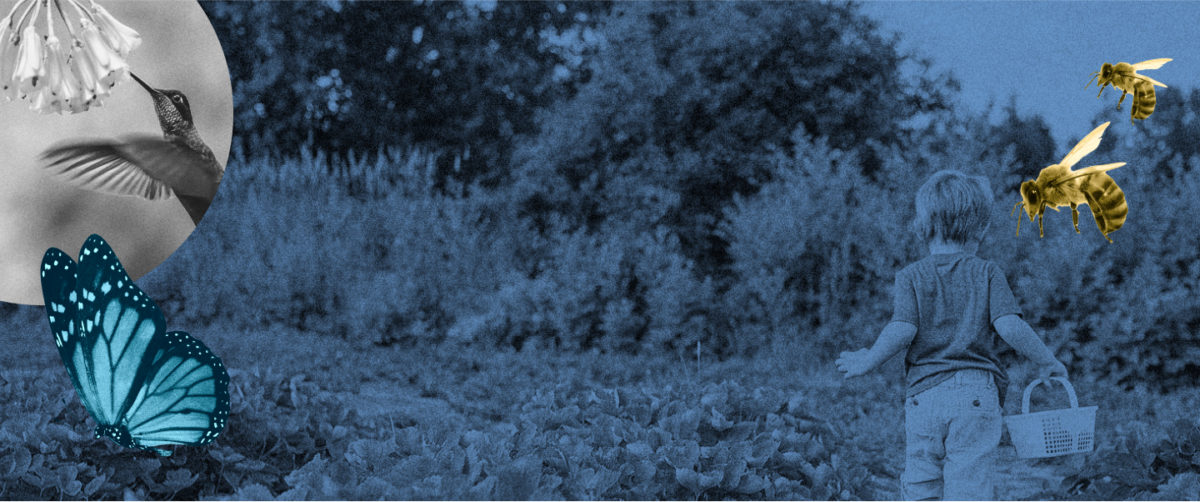We Can’t Eat Without Bees And Other Pollinators. Protecting Them Is Key.
Published Jun 24, 2021

The pollinators that are crucial to our food supply are in danger. But we can change the outcome for them and for the crops we rely on to feed everyone. Here’s how you can help.
Last week, a startup made headlines by claiming it is developing a vaccine that provides domestic honeybees with immunity towards a group of pesticides called organophosphates. The company wants to market the product as a solution to honeybee colony collapse.
Was this an early gift for National Pollinator Week? Hardly. At Food & Water Watch, we know that to truly protect bees from lethal pesticides, the duty falls on our legislators and regulators — not our beekeepers. Moreover, we need to systematically reform our food and farming systems, if we have any hope of saving our precious pollinators. This is why we support legislation like the Saving America’s Pollinators Act. It is also why we are fighting for a just transition to regional, sustainable food systems.
The Humble Honeybee Isn’t The Only Threatened Pollinator
Honeybees often come to mind when we think of pollinators. But did you know there are more than 100,000 species of animals across the globe that pollinate flowering plants? In fact, the vast majority of crops we eat are not pollinated by domesticated honeybees but by other wildlife, ranging from wild bees and moths to hummingbirds and fruit bats. We need to safeguard all of these unsung heroes that make it possible for us to eat.
Pesticides are just one threat facing pollinators. Climate change is another. Extreme weather destroys plants that pollinators depend on. It also disrupts the timing of plant flowering and the migration patterns of pollinators. Last year, the number of monarch butterflies that over-wintered in Mexico fell by a quarter from the previous year. Our government’s refusal to take bold action on climate change is threatening the survival of monarchs and other pollinators.
Our farming systems are also destroying vital pollinator habitat. Industrial practices like monocropping and chemical pesticide spraying reduce biodiversity. Over the past few decades, the U.S. significantly expanded its corn and soy acreage, mostly for non-food uses like ethanol and livestock feed. This took more land out of conservation reserve, reducing pollinator habitat. And nearly all of these corn and soybean acres are GMO varieties resistant to glyphosate (Roundup) herbicides. Glyphosate use is linked to steep declines in milkweed and other plant species crucial to pollinator survival.
Only a System-Wide Approach Will Save Our Pollinators
First, we can pass the Saving America’s Pollinators Act, reintroduced this week. The bill would immediately cancel the registration of neonicotinoids, a group of pesticides that are lethal to bees. It would also direct the U.S. Environmental Protection Agency (EPA) to create a Pollinator Protection Board. The Board would independently review pesticides for their threats to pollinators and their habitats, and monitor pollinator populations. That way, we can ensure that no harmful pesticides make it into the field in the first place.
Second, we need bold solutions to the climate crisis, including ending fossil fuel subsidies and transitioning to 100 percent clean and renewable energy by 2030. We cannot hope to protect pollinators if we do not address this imminent threat to all species’ survival.
Finally, Food & Water Watch is advocating for a radical transformation of our food and farming systems, to reduce climate emissions and promote biodiversity. We need to reestablish supply management for commodity crops, to stop the overproduction of corn and soy and end the glut of cheap grain that props up factory farms. We need to realign our farm safety net so that it encourages the adoption of regenerative practices that return biodiversity to the farm. Diverse, integrated crop-and-livestock operations will eliminate the need for pesticides while providing vital habitat for pollinators and other wildlife.We have the blueprints for making this transition happen. Help us celebrate National Pollinator Week by joining with us in demanding bold action to save our bees and other pollinators.
Your friends should see this.
Enjoyed this article?
Sign up for updates.
TO TOP


